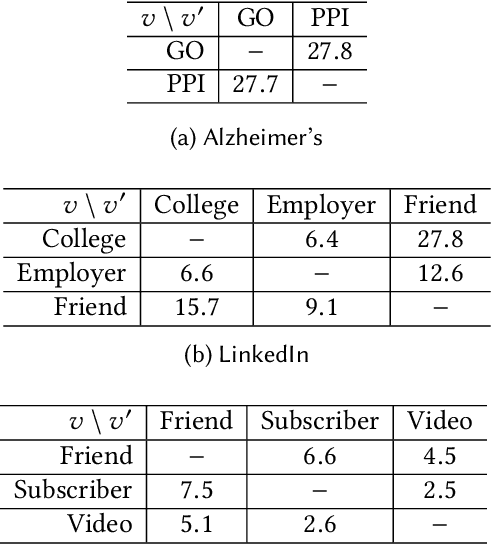Jiaqi Shi
CARE: Multi-Task Pretraining for Latent Continuous Action Representation in Robot Control
Jan 30, 2026Abstract:Recent advances in Vision-Language-Action (VLA) models have shown promise for robot control, but their dependence on action supervision limits scalability and generalization. To address this challenge, we introduce CARE, a novel framework designed to train VLA models for robotic task execution. Unlike existing methods that depend on action annotations during pretraining, CARE eliminates the need for explicit action labels by leveraging only video-text pairs. These weakly aligned data sources enable the model to learn continuous latent action representations through a newly designed multi-task pretraining objective. During fine-tuning, a small set of labeled data is used to train the action head for control. Experimental results across various simulation tasks demonstrate CARE's superior success rate, semantic interpretability, and ability to avoid shortcut learning. These results underscore CARE's scalability, interpretability, and effectiveness in robotic control with weak supervision.
Enhancing point cloud analysis via neighbor aggregation correction based on cross-stage structure correlation
Jun 18, 2025Abstract:Point cloud analysis is the cornerstone of many downstream tasks, among which aggregating local structures is the basis for understanding point cloud data. While numerous works aggregate neighbor using three-dimensional relative coordinates, there are irrelevant point interference and feature hierarchy gap problems due to the limitation of local coordinates. Although some works address this limitation by refining spatial description though explicit modeling of cross-stage structure, these enhancement methods based on direct geometric structure encoding have problems of high computational overhead and noise sensitivity. To overcome these problems, we propose the Point Distribution Set Abstraction module (PDSA) that utilizes the correlation in the high-dimensional space to correct the feature distribution during aggregation, which improves the computational efficiency and robustness. PDSA distinguishes the point correlation based on a lightweight cross-stage structural descriptor, and enhances structural homogeneity by reducing the variance of the neighbor feature matrix and increasing classes separability though long-distance modeling. Additionally, we introducing a key point mechanism to optimize the computational overhead. The experimental result on semantic segmentation and classification tasks based on different baselines verify the generalization of the method we proposed, and achieve significant performance improvement with less parameter cost. The corresponding ablation and visualization results demonstrate the effectiveness and rationality of our method. The code and training weight is available at: https://github.com/AGENT9717/PointDistribution
Vision-Based Deep Reinforcement Learning of UAV Autonomous Navigation Using Privileged Information
Dec 09, 2024Abstract:The capability of UAVs for efficient autonomous navigation and obstacle avoidance in complex and unknown environments is critical for applications in agricultural irrigation, disaster relief and logistics. In this paper, we propose the DPRL (Distributed Privileged Reinforcement Learning) navigation algorithm, an end-to-end policy designed to address the challenge of high-speed autonomous UAV navigation under partially observable environmental conditions. Our approach combines deep reinforcement learning with privileged learning to overcome the impact of observation data corruption caused by partial observability. We leverage an asymmetric Actor-Critic architecture to provide the agent with privileged information during training, which enhances the model's perceptual capabilities. Additionally, we present a multi-agent exploration strategy across diverse environments to accelerate experience collection, which in turn expedites model convergence. We conducted extensive simulations across various scenarios, benchmarking our DPRL algorithm against the state-of-the-art navigation algorithms. The results consistently demonstrate the superior performance of our algorithm in terms of flight efficiency, robustness and overall success rate.
Multi-View Collaborative Network Embedding
May 17, 2020



Abstract:Real-world networks often exist with multiple views, where each view describes one type of interaction among a common set of nodes. For example, on a video-sharing network, while two user nodes are linked if they have common favorite videos in one view, they can also be linked in another view if they share common subscribers. Unlike traditional single-view networks, multiple views maintain different semantics to complement each other. In this paper, we propose MANE, a multi-view network embedding approach to learn low-dimensional representations. Similar to existing studies, MANE hinges on diversity and collaboration - while diversity enables views to maintain their individual semantics, collaboration enables views to work together. However, we also discover a novel form of second-order collaboration that has not been explored previously, and further unify it into our framework to attain superior node representations. Furthermore, as each view often has varying importance w.r.t. different nodes, we propose MANE+, an attention-based extension of MANE to model node-wise view importance. Finally, we conduct comprehensive experiments on three public, real-world multi-view networks, and the results demonstrate that our models consistently outperform state-of-the-art approaches.
 Add to Chrome
Add to Chrome Add to Firefox
Add to Firefox Add to Edge
Add to Edge